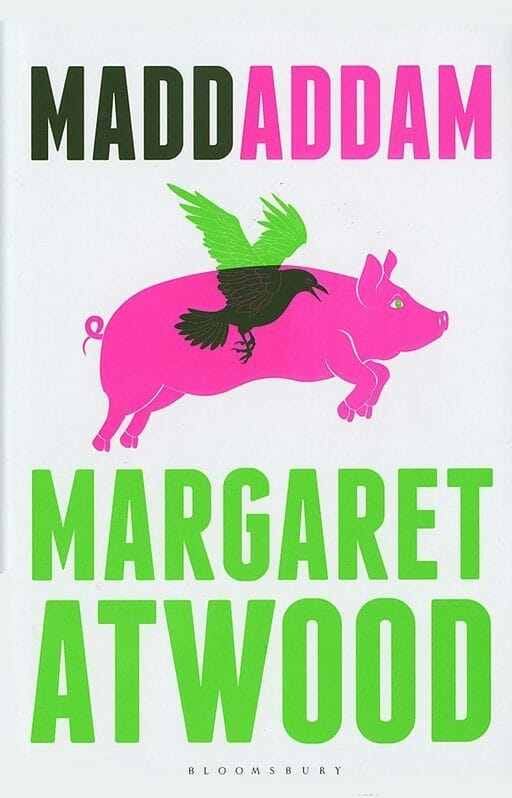 The wonderful author Margaret Atwood is speaking tonight at the Southbank Centre about her new book MaddAdam, the highly anticipated trilogy, coming after Oryx and Crake, and After The Flood. The trilogy is an important work in the emerging field of climate change literature, with a dark, specualtive look at a dystopian future where the planet and humanity has been ravaged by numerous environmental catastrophes and techno-collapse.
The wonderful author Margaret Atwood is speaking tonight at the Southbank Centre about her new book MaddAdam, the highly anticipated trilogy, coming after Oryx and Crake, and After The Flood. The trilogy is an important work in the emerging field of climate change literature, with a dark, specualtive look at a dystopian future where the planet and humanity has been ravaged by numerous environmental catastrophes and techno-collapse.
Given the content of the books, dealing with a world devastated by the vicious grip of mega-corporations, the relevance, and contradiction of Shell as a sponsor of the Southbank Centre is thrown into the spotlight once more. This happened recently with Yoko Ono’s curation of the Meltdown Festival at the Southbank Centre, where we contrasted Yoko Ono’s admirable anti-fracking activism with Shell’s sponsorship and its role as a “Global Mega-Fracker.”
We tweeted at Margaret to see if she was aware of the Southbank Centre’s involvement with Shell. To our pleasant surprise she responded almost immediately.
@PlatformLondon @southbankcentre: Didn’t know, but obviously we must talk about it…
— Margaret E. Atwood (@MargaretAtwood) August 27, 2013
We then followed up, and she issued what we interpret to be an ominous warning to those taking oil money.
@PlatformLondon @southbankcentre: The Church of PetrOleum has you in its crosshairs. Where your treasure is, there will your heart be also.
— Margaret E. Atwood (@MargaretAtwood) August 27, 2013
It’s vital that authors and public figures like Margaret Atwood are willing to engage in this very necessary debate. Companies like Shell are cheaply buying a veneer of corporate responsibility through cultural sponsorship arrangements while simultaneously exacerbating the climate crisis and devastating communities from the Niger Delta through Canada. Margaret Atwood’s trilogy is holding a mirror up to our society and asking hard questions about the choices that we’re making. Hopefully tonight’s discussion at the Southbank Centre can similarly involve some tough questions put to UK cultural institutions about the role they are playing in reinforcing the social legitimacy of some of the world’s most controversial and climate trashing companies.